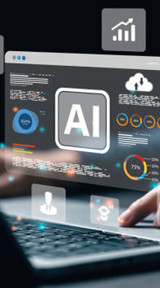The Evolution of Recruitment with AI
Traditionally, recruitment has been a labour-intensive process involving sifting through resumes, conducting numerous interviews, and making subjective hiring decisions. However, the advent of AI has introduced a paradigm shift. AI-powered tools can now automate repetitive tasks, analyze large volumes of data, and provide actionable insights, significantly enhancing the efficiency and effectiveness of the recruitment process.









